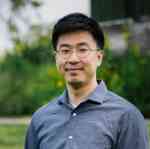Researchers want to address important problems in a fast, meaningful way. Business & Society Commentary offers a path to impact.
This article is the first in a series about how academic journals can help researchers achieve real-world impact. Do you know of an innovative journal format that fosters research impact? Share your thoughts in the comment section below or info@nbs.net.
If you’re a researcher in the field of business and management, you’ll probably publish your work in an academic journal. And if you’re someone who wants to make a difference on pressing real-world issues, you may have found the journal process frustrating.
Often, publication in an academic journal is a slow, multi-year process. Article reviewers can discourage application to practical challenges, and articles may be densely written and difficult for non-academics to understand. But increasingly, journal editors are looking for ways to change these patterns.
Editors can shape a journal’s mission and focus. Many are experimenting with innovative formats that break free from traditional review and publication process, helping rigorous research insights to inform practice.
Business & Society Commentary provides a new approach
At the journal Business & Society (B&S), Hari Bapuji, Frank de Bakker, and other co-editors have launched a forum for debating important topics. Business & Society Commentary will feature short pieces sourced from a broad set of stakeholders and freely available (open access). To quickly publish the commentaries, the editors will provide direct feedback and oversight to contributors, rather than placing them under peer review.
Appropriately enough, the first set of Commentaries addressed the theme of research impact. To celebrate the launch, and explore what B&S is trying to achieve, I spoke with Hari Bapuji (University of Melbourne) and his Business & Society co-editor Frank de Bakker (IÉSEG School of Management). We spoke about perspectives on research impact and how scholars – especially those early in their careers – can get involved.
Our edited conversation is below.
How do you define scholarly impact?
Frank: Impact is about how academic work can have an influence on a wider part of society than the scholarly community alone. It’s about showing people the impact of business on society, and the effects of society on business. It’s about seeing business as an integral part of society.
Hari: Impact and influence were two of the editorial values we’ve articulated since we started as editors at Business & Society. Impact is more tangible and measurable, and more specific in terms of its effect on practice. Influence is softer and more intangible in shaping the discourse.
What are key learnings from the first set of B&S Commentaries, on impact?
Frank: There are already a lot of discussions on impact. But in our commentaries, we really tried to capture a wider set of authors, including people who have actually made an impact on practice.
Hari: We also invited non-academics. For example, we have the Global Education Editor at The Financial Times discussing their business school ranking and their desire for scholarly engagement to establish new methods, metrics, and standards to capture societal impact.
Frank: We also have a sociologist suggesting that rankings impede performance, and scholarly pursuit, and thus impact. Tima Bansal and Garima Sharma have written about different types of impact; we have another piece on social media and impact. Other writings provide very practical guides: e.g. how to develop a personal impact development plan or involve social science stakeholders.
How does B&S Commentary differ from other formats or platforms?
Hari: We are also engaging with people who are outside of business disciplines and engaging with practitioners. Also, most of the people who have spoken to impact so far are senior scholars. We are also trying to broaden the conversation to junior scholars, as well as those outside the typical Western/European concentration.
Frank: We try to create a format that allows quick response to pressing business and societal issues. Usually, the publication process is so long. Once an article gets accepted, it can sit ‘online first’ for quite a while before it actually goes out. We really tried to speed up things here.
The commentaries are really something else than academic articles but still aim to be part of the larger conversation that we are having.
Such conversations are more complicated now, due to the pandemic. Normally, we talk over a coffee or during a break at a conference or a small workshop. Now, we are creating a different platform and that hopefully helps in reaching a wider audience, both generation-wise and geography-wise.
Hari: It’s a new category but it’s by no means less rigorous. We spent a lot of time on each of those commentaries, doing a lot of revisions with the authors.
Do you have advice for early career scholars on impact scholarship? Should they wait until after they receive tenure?
Frank: There are different ways to engage with impact. If you put all your efforts into impact scholarship, that might have a negative effect on your scholarly profile. So, it might be wise not to make it your main activity.
But contributing a 1500-word Commentary should be feasible, even if you are very concentrated on scholarly academic work. You could develop ideas and engage in discussions, even if you have a lot of other obligations and requirements.
Hari: I strongly believe that one should not wait until tenure, for three reasons.
First, it becomes too late to change. If you want to have an impact, you need to pick the right kind of phenomenon and ask the right kind of questions. That has to start early. If you wait until you have your tenure, even if you pick the right kind of phenomena, you would still look at it from the perspective of whatever theories or methods you have used.
Second, anyone coming to do a Ph.D. has tremendous ability, intelligence, and resilience. If we don’t get engaged in challenging topics, who will? We often leave lucrative and easy jobs to take positions in academia. So then why would you compromise? Do something that you really care about.
Finally, I think tenure is important. But in general, as long as you follow your passion and do good work, you’ll get it. If you don’t get tenure in one place, you get it in some other place. So, tenure alone should not decide what kind of work you do.
One last question, where do you see the impact discussion moving in the future?
Hari: I think we’ll have more discussion on what is impact and how to achieve it, and how to measure it. I see it as really in flux at the moment. It’s just the beginning.
Frank: Yes, I agree. I am most curious about how this word is going to be taken up by institutions like schools and accreditation bodies. They might have a tendency to make it something to measure, something to categorize and enforce in order to determine some progress.
But ideally, it would be way more than checking the boxes, more than an obligatory exercise. I’m thinking about how private firms are trying to incorporate sustainability requirements. “Oh, we have done that, we have that. We have an officer.” That’s not enough for sustainability. That would also not be enough for impact.
Share Your Experience with Journals and Impact
Do you know of innovative formats adopted by management journals in order to facilitate impact on practice? Share your example with us. We are compiling a list for researchers like you who may find these journals as valuable outlets for their research.
Comment below or send to info@nbs.net
About the Author
Ju Young is a Postdoctoral Associate at the Center for Building Sustainable Value, Ivey Business School. He has recently completed his Ph.D. in Organization Studies at Boston College. His research interests include understanding the processes of transformational changes, or the lack of thereof, at different levels (i.e., societal, field, and organizational) and how actors (i.e., organizations and individuals) initiate and implement such changes. He is particularly drawn to change initiatives that are aimed at addressing the grand societal challenges such as poverty, inequalities, and climate crisis.



Add a Comment
This site uses User Verification plugin to reduce spam. See how your comment data is processed.This site uses User Verification plugin to reduce spam. See how your comment data is processed.